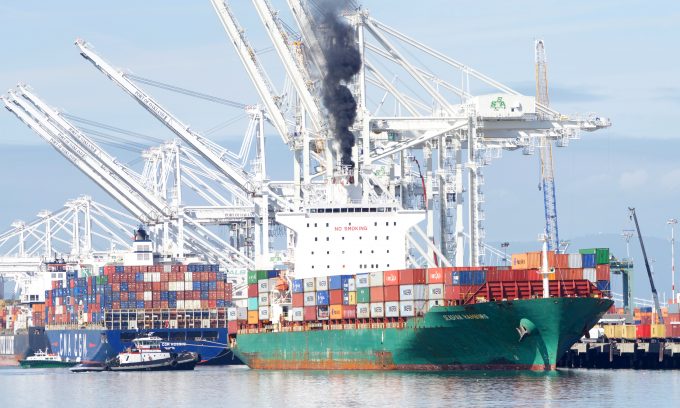HMM takes delivery of its first methanol-powered containership
South Korean shipping line HMM has taken delivery of the HMM Green (above), the first ...

Debate at the International Maritime Organization (IMO) over its level of ambition for decarbonising shipping closed without conclusion – discussions continued for more than a day and a half of the five-day meeting, and the chairman invited member states to submit proposals for discussion at ...
CMA CGM South Korean staff strike over bonuses after bumper 2024 profit
MSC switches two more Asia-Europe port calls from congested Antwerp
Ports and supply chain operators weigh in on funding for CPB
Nightmare for Bangladeshi exporters as congestion and tariffs bite
Carriers introduce surcharges as congestion builds at African ports
Box ship overcapacity threat from carrier appetite for new tonnage
CMA airline returns two freighters, while ANA takeover of NCA looms
Tradelanes: Export boom in Indian sub-continent triggers rise in airfreight rates

Comment on this article